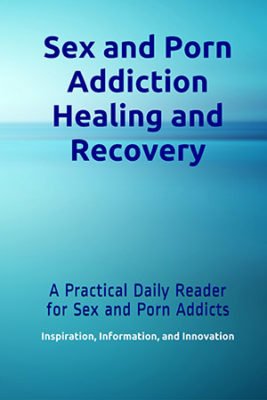Coping Mechanisms have been around since the days of Freud. The meaning behind them has changed and been adapted over the years. You’ve probably heard it talked about in popular media or even by peers but what are coping mechanisms? Coping is using thoughts and behaviors to help manage internal or external stressful situations. The mechanisms are the actual thoughts and behaviors used to help manage stressful or highly emotional situations. Not all coping mechanisms are positive and not all are negative. It largely depends on the individual and whether it is affecting their daily functioning or mental health. Modern therapists continue to use coping mechanisms as a way to explore the issues that individuals come to therapy for. Coping mechanisms can be adaptive and helpful or maladaptive and harmful. It’s important to explore what they are and why they are being used.
Different Coping Mechanisms For Different People
There are many different types of coping mechanisms, but they can be broken down into four main subsets: Problem-Focused, Emotion-Focused, Meaning Focused, and Social Coping. Problem-Focused Coping Mechanisms include any thought or behavior that directly addresses the problem or distress head-on. This could include planning, creating to-do lists, prioritizing tasks or events, etc. Anything that looks logically and directly at the problem itself would be included in this category.
Emotion-Focused Coping Mechanisms include any thought or behavior that helps reduce the negative emotions attached to the distress. This could include cognitive reframing, humor, suppressing emotions, mindfulness practices, drinking alcohol, journaling, engaging in sexual behavior, etc. These coping mechanisms are all about reducing and sometimes avoiding the emotions associated with stressful events.
Meaning Focused Coping Mechanisms include thoughts and behaviors that help an individual derive meaning from stressful situations. This could include turning to religion, practicing gratitude, searching for the silver lining or positives in situations, etc. These help individuals reframe the situation into one that is more manageable.
Social Coping refers to an individual reaching out for social support. This could be reaching out to family, friends, community members, or a therapist. This type of coping helps individuals feel less alone and feel that they can face large challenges.
Emotion-Focused Coping Mechanisms include any thought or behavior that helps reduce the negative emotions attached to the distress. This could include cognitive reframing, humor, suppressing emotions, mindfulness practices, drinking alcohol, journaling, engaging in sexual behavior, etc. These coping mechanisms are all about reducing and sometimes avoiding the emotions associated with stressful events.
Meaning Focused Coping Mechanisms include thoughts and behaviors that help an individual derive meaning from stressful situations. This could include turning to religion, practicing gratitude, searching for the silver lining or positives in situations, etc. These help individuals reframe the situation into one that is more manageable.
Social Coping refers to an individual reaching out for social support. This could be reaching out to family, friends, community members, or a therapist. This type of coping helps individuals feel less alone and feel that they can face large challenges.
Sexual Coping: The Signs and Signals
Hypersexuality is not considered a DSM diagnosis and can be incredibly subjective; however, it is defined as indulging in excessive sexual behaviors including but not limited to intercourse, pornography consumption, compulsive masturbation, etc. What is considered problematic sexual behavior, as stated before, is subjective to the individual in question; however, it is generally considered excessive and problematic when it interferes with one or more areas of functioning in someone’s life.
Sexual behavior, such as intercourse, porn, masturbation, etc, is something that is done for a number of reasons. It can be simply to enjoy a pleasurable experience, to connect with a partner, or even to help boost your mood. So, what draws the line between a positive relationship with sex and a problematic one? While this can be subjective there are some signs that you may not have a positive relationship with sex.
Firstly, a strong indicator of a problematic relationship with sex is when sex or sexual behaviors start to become or feel compulsive. This could be feeling out of control in the type of sexual behaviors you are experiencing, or feeling as if you need to constantly engage in the behaviors. This also may lead to risky sexual behaviors such as unprotected sex or engaging in sex under the influence. This isn’t the same as an addiction, because there isn’t a chemical compound in sexual behavior that causes a neurological feedback loop.
Another indicator of a problematic relationship with sex is when it becomes the main or only go-to for coping with major distress and emotional upheavals. As stated before it can be used to boost an individual’s mood and it’s not inherently negative. However, when it becomes the only way to cope and begins to interfere with daily functioning or has adverse effects then it’s less of a positive mood boost.
Sex can be a way to connect with a partner, but when you begin to use sex as a maladaptive coping mechanism connection and emotional intimacy are usually pushed to the side. In some cases, sex is used as a way to avoid that intimacy altogether, and the individual may struggle to make any emotional connections with someone.
Finally, using sex as a maladaptive coping mechanism may create negative emotional consequences that were unexpected. These could include depressive symptoms, feelings of shame, guilt, or even regret. This usually leads to a pattern where sex is used to attempt to mitigate the feelings, but instead perpetuates the feelings.
Sexual behavior, such as intercourse, porn, masturbation, etc, is something that is done for a number of reasons. It can be simply to enjoy a pleasurable experience, to connect with a partner, or even to help boost your mood. So, what draws the line between a positive relationship with sex and a problematic one? While this can be subjective there are some signs that you may not have a positive relationship with sex.
Firstly, a strong indicator of a problematic relationship with sex is when sex or sexual behaviors start to become or feel compulsive. This could be feeling out of control in the type of sexual behaviors you are experiencing, or feeling as if you need to constantly engage in the behaviors. This also may lead to risky sexual behaviors such as unprotected sex or engaging in sex under the influence. This isn’t the same as an addiction, because there isn’t a chemical compound in sexual behavior that causes a neurological feedback loop.
Another indicator of a problematic relationship with sex is when it becomes the main or only go-to for coping with major distress and emotional upheavals. As stated before it can be used to boost an individual’s mood and it’s not inherently negative. However, when it becomes the only way to cope and begins to interfere with daily functioning or has adverse effects then it’s less of a positive mood boost.
Sex can be a way to connect with a partner, but when you begin to use sex as a maladaptive coping mechanism connection and emotional intimacy are usually pushed to the side. In some cases, sex is used as a way to avoid that intimacy altogether, and the individual may struggle to make any emotional connections with someone.
Finally, using sex as a maladaptive coping mechanism may create negative emotional consequences that were unexpected. These could include depressive symptoms, feelings of shame, guilt, or even regret. This usually leads to a pattern where sex is used to attempt to mitigate the feelings, but instead perpetuates the feelings.
Reaching Out For Help
Coping mechanisms are not always easy to identify or stop as they are serving a purpose in your life. Maybe drinking helps you avoid negative emotions. Or sex helps give you a rush of adrenaline and dopamine, which boosts your mood. Planning out your entire day helps with the anxiety of a busy life. All coping mechanisms are created for a reason, and some are more positive than others. Maladaptive coping mechanisms can cause damage to your mental health as well as other areas of your life. Additionally, individuals who engage in more maladaptive coping mechanisms are more likely to engage in risky behaviors associated with those coping mechanisms such as unprotected sex.
So, when is it necessary to reach out for help? Unfortunately, this isn’t a question that can easily be answered as it’s subjective to the individual and their level of sexual functioning. As problematic sexual coping mechanisms, as well as other maladaptive coping mechanisms, start to interfere with daily functioning and mental health, that can be a strong indicator that help might be needed.
So, when is it necessary to reach out for help? Unfortunately, this isn’t a question that can easily be answered as it’s subjective to the individual and their level of sexual functioning. As problematic sexual coping mechanisms, as well as other maladaptive coping mechanisms, start to interfere with daily functioning and mental health, that can be a strong indicator that help might be needed.
Think You Might Be Using Sex to Cope? Consider Meeting with a Sex Therapist in Plymouth, MN
Talking with an expert sex therapist can be helpful for this topic and many times sexual behavior itself is not the main focus of therapy, instead, therapy focuses on the reasons for needing a coping mechanism in the first place. This work is usually done in conjunction with work to decrease maladaptive sexual coping mechanisms. This will include a lot of self-reflection, working on self-awareness, and developing alternative coping strategies while continuing to challenge negative beliefs and attitudes. All of which can be successfully worked through. Our sex therapists want to help you address sexual concerns here in Plymouth, or anywhere in the state with online therapy in Minnesota. Get started by following these simple steps:
- Contact the Sexual Wellness Institute to set up your first appointment.
- Meet with one of our skilled sex therapists for an intake appointment.
- Learn how to feel more connected and in-control of your sex life, today.
Other Mental Health Services in Minnesota
In addition to sex therapy, our LGBT & polyamory friendly sex therapists provide a wide range of mental health services at our Plymouth, MN counseling office. Other services include couples therapy & marriage counseling, EFT, evidence-based couples therapy, EMDR & sexual trauma therapy, as well as, teen therapy. In order to help serve the mental health needs of all those living in Minnesota, we also offer online counseling & sex therapy. We also provide a variety of helpful tips on our mental health blog. Please feel free to reach out with questions, or if you would like to schedule an appointment to begin working with a skilled sex therapist! Your sex life can be amazing, not just a coping mechanism. Sex therapy can be a part of that process for you.
We’re thrilled to be named one of the “Top 20 Sex Therapy Blogs You Need to Follow”Click To Add Text
References
Algorani EB, Gupta V. Coping Mechanisms. [Updated 2023 Apr 24]. In: StatPearls [Internet]. Treasure Island (FL): StatPearls Publishing; 2023 Jan-. Available from: https://www.ncbi.nlm.nih.gov/books/NBK559031/
Fontanesi, L., Marchetti, D., Limoncin, E., Rossi, R., Nimbi, F. M., Mollaioli, D., Sansone, A., Colonnello, E., Simonelli, C., Di Lorenzo, G., Jannini, E. A., & Ciocca, G. (2021). Hypersexuality and trauma: A mediation and moderation model from Psychopathology to Problematic Sexual Behavior. Journal of Affective Disorders, 281, 631–637. https://doi.org/10.1016/j.jad.2020.11.100
R221121. (2023, July 12). Is sex your coping mechanism? here’s how to stop. Healthshots. https://www.healthshots.com/how-to/sex-as-coping-mechanism-how-to-stop-it/
Fontanesi, L., Marchetti, D., Limoncin, E., Rossi, R., Nimbi, F. M., Mollaioli, D., Sansone, A., Colonnello, E., Simonelli, C., Di Lorenzo, G., Jannini, E. A., & Ciocca, G. (2021). Hypersexuality and trauma: A mediation and moderation model from Psychopathology to Problematic Sexual Behavior. Journal of Affective Disorders, 281, 631–637. https://doi.org/10.1016/j.jad.2020.11.100
R221121. (2023, July 12). Is sex your coping mechanism? here’s how to stop. Healthshots. https://www.healthshots.com/how-to/sex-as-coping-mechanism-how-to-stop-it/


 Anal Beads
Anal Beads Anal Vibrators
Anal Vibrators Butt Plugs
Butt Plugs Prostate Massagers
Prostate Massagers
 Alien Dildos
Alien Dildos Realistic Dildos
Realistic Dildos
 Kegel Exercisers & Balls
Kegel Exercisers & Balls Classic Vibrating Eggs
Classic Vibrating Eggs Remote Vibrating Eggs
Remote Vibrating Eggs Vibrating Bullets
Vibrating Bullets
 Bullet Vibrators
Bullet Vibrators Classic Vibrators
Classic Vibrators Clitoral Vibrators
Clitoral Vibrators G-Spot Vibrators
G-Spot Vibrators Massage Wand Vibrators
Massage Wand Vibrators Rabbit Vibrators
Rabbit Vibrators Remote Vibrators
Remote Vibrators
 Pocket Stroker & Pussy Masturbators
Pocket Stroker & Pussy Masturbators Vibrating Masturbators
Vibrating Masturbators
 Cock Rings
Cock Rings Penis Pumps
Penis Pumps
 Wearable Vibrators
Wearable Vibrators Blindfolds, Masks & Gags
Blindfolds, Masks & Gags Bondage Kits
Bondage Kits Bondage Wear & Fetish Clothing
Bondage Wear & Fetish Clothing Restraints & Handcuffs
Restraints & Handcuffs Sex Swings
Sex Swings Ticklers, Paddles & Whips
Ticklers, Paddles & Whips






















